rational solutions to interfacial problems in energy and sustainability
Kevin N. Wood
San Diego State University
About

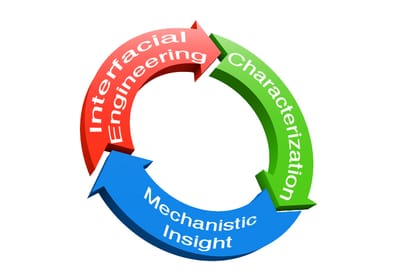

Research
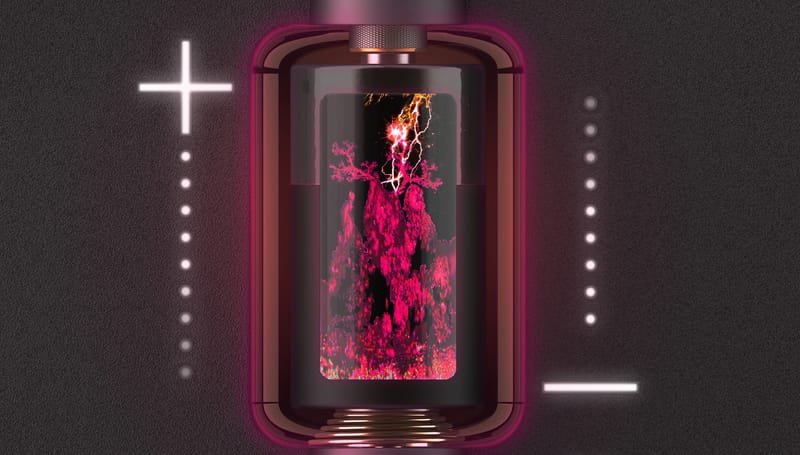
Batteries
Energy storage is the preeminent challenge facing the 21st century. Batteries are the key to enabling, potable power, electric vehicles, and a clean grid.
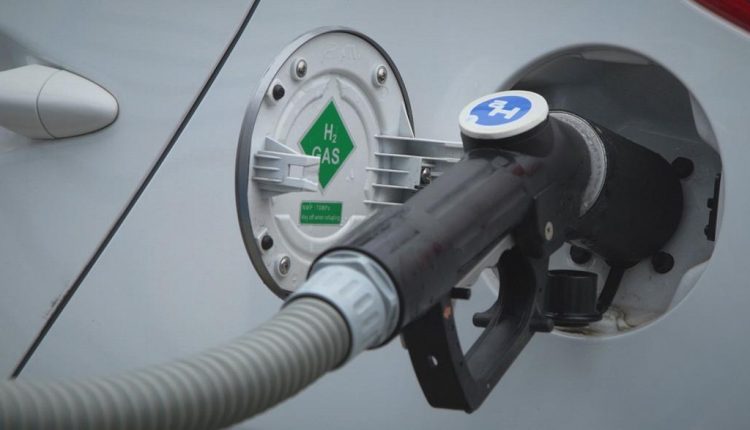
Fuel Cells
Fuel Cells are an essential part of the proposed hydrogen economy. The high efficiency of fuel cell devices make them a promising method for storing/generating energy.

Corrosion Prevention
Corrosion is a multi-billion dollar a year problem. Coatings and material modifications are essential for reducing waste and increasing productivity.
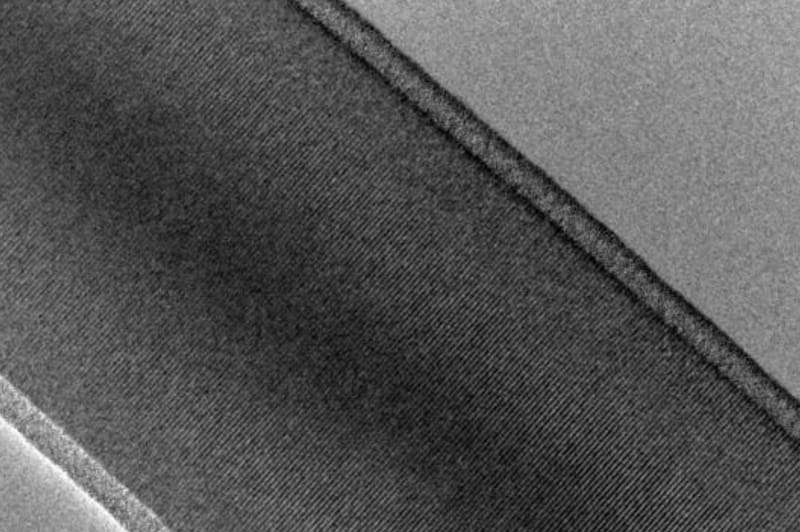
Interfacial Design
Interfacial design is a critical step in engineering solutions. To address these issues chemical and physical deposition strategies can be used.
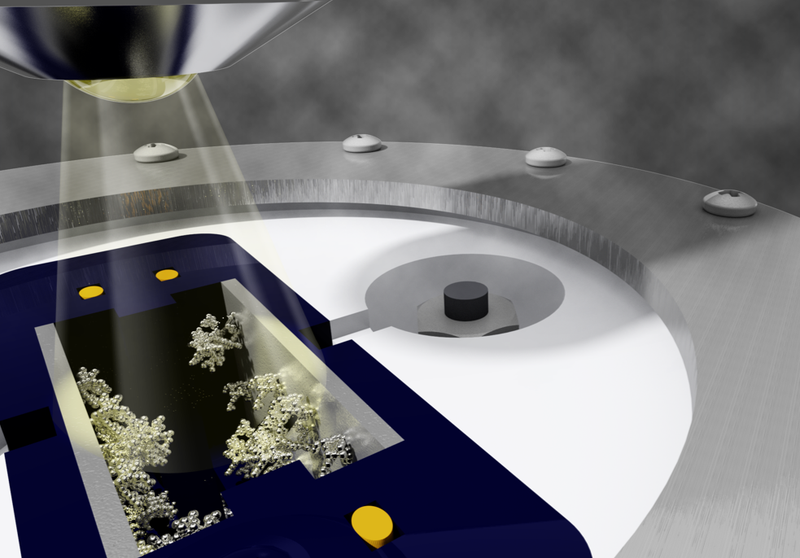
Operando Characterization
Operando characterization platforms are an important method for determining the origins of failure and poor performance, enabling rational design strategies.
Publications
Chemistry of Electrolyte Reduction on Lithium Silicide
Study on the electrochemical performance and properties of lithiated silicon anode films made via Si sputtering and Li evaporation.
Learn More5/7/2019Method of Improved Performance in Metal Electrodes For Batteries
US and international patent on improving Li metal anodes through a specialized electrochemical treatment process
Learn More5/2/2019Mechanical Properties and Chemical Reactivity of LixSiOy Thin Films
LiSiyOx is thought to be an important component of the SEI in Si anode batteries. This paper analyses LiSiyOx film properties made via co-sputtering
Learn More10/15/2018XPS on Li Battery Related Compounds: Analysis of Inorganic SEI Phases and a Methodology for Charge Correction
A methodology for how to accurately decompose XPS spectra in order to understand interfacial behavior in batteries.
Learn More8/13/2018Operando X-ray photoelectron spectroscopy of solid electrolyte interphase formation and evolution in LPS solid-state electrolytes
Developed a novel characterization platform help design safe, highly conductive next generation battery electrolytes.
Learn More6/27/2018Band edge positions and their impact on the simulated device performance of ZnSnN2-based solar cells
Study on the viability of ZNT as a new Earth abundant adsorber for photovoltaic applications.
Learn More1/8/2018Ru-Sn/AC for the Aqueous-Phase Reduction of Succinic Acid to 1, 4-Butanediol under Continuous Process Conditions
Developed a method for converting a renewable bio-mass feedstock into a common chemical used in everyday life.
Learn More8/21/2017Atomic Layer Deposition of the Solid Electrolyte Garnet LLZO
Developed a way to make ultra-thin layers of a popular battery solid electrolyte. This could improve interfacial performance or manufacturability.
Learn More4/14/2017Lithium metal anodes: toward an improved understanding of coupled morphological, electrochemical, and mechanical behavior
A perspective on the future of Li metal anodes of advanced next generation battery systems.
Learn More2/16/2017Dead lithium: mass transport effects on voltage, capacity, and failure of lithium metal anodes
This study is the second part (2/2) of understanding how voltage profiles can be be used to design next generation Li metal anode batteries.
Learn More3/23/2017Dendrites and pits: untangling the complex behavior of lithium metal anodes through operando video microscopy
The first part of two studies that utilize optical video microscopy to understand how the voltage response of a battery can be used to understand what is happening inside a battery during operation.
Learn More10/14/2016Spectroscopic investigation of nitrogen‐functionalized carbon materials
A synchrotron based study aimed at understanding why nitrogen modified carbons improve fuel cell catalyst durability.
Learn More4/7/2016Improved cycle life and stability of lithium metal anodes through ultrathin atomic layer deposition surface treatments
Using atomic layer deposition to prevent corrosion during cycling of Li metal anode batteries.
Learn More9/11/2015Hierarchical ZnO nanowire growth with tunable orientations on versatile substrates using atomic layer deposition seeding
A study on using atomic layer deposition to create hierarchical interfaces that can be used prevent corrosion, increase catalytic activity, or increase active surface area of materials.
Learn More6/19/2015Nitrogen post modification of PtRu/carbon catalysts for improved methanol oxidation reaction performance in alkaline media
A study showing how nitrogen modification of the carbon on which fuel catalysts are deposited, can be used in alkaline based fuel cells.
Learn More6/4/2015High‐Performance Alkaline Direct Methanol Fuel Cell using a Nitrogen‐Post doped Anode
A full fuel cell level study on how our modification of the best commercially available catalyst drastically improve performance.
Learn More6/2/2014Effect of nitrogen post-doping on a commercial platinum–ruthenium/carbon anode catalyst
A small scale study on how our modification of the best commercially available catalyst drastically improve performance.
Learn More2/15/2014Recent progress on nitrogen/carbon structures designed for use in energy and sustainability applications
Review paper on how nitrogen modification of carbon based materials has been used to improve energy storage devices.
Learn More1/28/2014Improvement in direct methanol fuel cell performance by treating the anode at high anodic potential
A study on how using a high voltage initial treatment of a full cell can improve device performance.
Learn More1/1/2014Enhanced Fuel Cell Catalyst Durability with Nitrogen Modified Carbon Supports
Study on how nitrogen modification of a standard carbon powder can improve fuel cell performance.
Learn More2/12/2013Enhanced Stability of PtRu Supported on N-Doped Carbon for the Anode of a DMFC
A full fuel cell level study demonstrating how nitrogen modification of carbon supported catalysts improve lifetime and performance of these devices.
Learn More9/18/2012In situ small-angle x-ray scattering analysis of improved catalyst—support interactions through nitrogen modification
A novel operando characterization study demonstrating that nitrogen doping of carbon catalyst supports improves fuel cell catalyst by preventing dissolution and coalescence of catalyst nanoparticles.
Learn More7/1/2012Effect of halide-modified model carbon supports on catalyst stability
Initial investigation of how different dopants on carbon supported Pt/Ru catalysts effect fuel cell performance.
Learn More12/12/2012Team
Dr. Kevin N. Wood
Assistant Professor
Dr. Kevin N. Wood is an Assistant Professor in the Mechanical Engineering department specializing in electrochemical energy storage devices.
Tyler Lestak
Masters Student
Masters of Science degree in Mechanical Engineering (2020)
